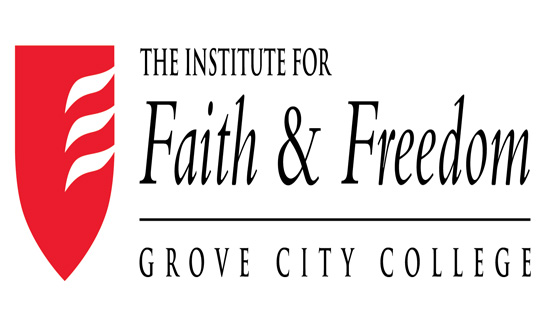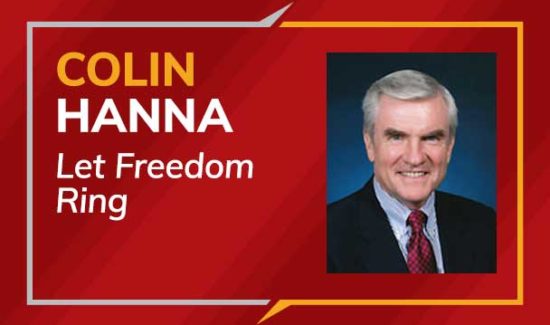Two Parties, One Election, No Choices
It’s been a yawner—a saccharine affair that has excited few, numbed many, and bored most. We refer, of course, to the alleged Pennsylvania gubernatorial primary "contest" blessedly scheduled to end on May 18th.
Rarely have the voters in an open seat gubernatorial primary known less about the candidates running, seldom have gubernatorial candidates talked more while saying less, and never have voters been less interested in a primary election.
We really need someone to blame for all this. Fortunately we can count on Democrats and Republicans alike to play the heavy. They have put the voters to sleep by running largely uninspiring campaigns. Both parties’ candidates have mostly ducked the tough question, glossing over how they would handle the state’s most serious fiscal, pension, transportation, and economic growth problems. Meaningful specifics about taxes, program and staff cuts, and deficit reduction plans have been sorely lacking.
Let’s start the indictment with the Republicans because they keep things simple. State Republicans are observing one of their patented "pontifical" successions. They (they being Republican bosses and the state committee) have decided the nominee will be Attorney General Tom Corbett. A sacrificial lamb, Representative Sam Rohrer is also running, and so there will technically be an election on May 18th. But nobody is fooled. It’s a coronation. Corbett has all the political chips, the marquee name, the party endorsement, big bucks in the bank, name identification, and a television presence. Corbett’s king and there is no one who doesn’t know it. Still, a few million Republicans will troop to the polls dutifully to anoint the party-endorsed candidate, as they have routinely in the past. But excited, enthusiastic, or energized they are not.
Now to the Democrats: a similar story, albeit a different script. Being Democrats, they had to find another way to etherize voters. Unlike Republicans they actually let diverse candidates compete with one another. But rather than make it a spirited debate, the candidates managed to make it all seem like a convention of anesthesiologists. In a record number of joint appearances and individual events the candidates played nice, were unfailingly polite, and almost never mentioned each other until the last two weeks of the campaign. On the overriding issues of the state’s sagging economy, the deficit budget woes, and the need to change the culture in the state capitol they sounded monotonously similar and monochromatically dull.
All four Democratic candidates—Dan Onorato, Jack Wagner, Joe Hoeffel, and Anthony Williams—have staked out a piece of the usual political market place. Onorato, the Allegheny County Executive, has provided traditional economic and education themes articulated for decades by a succession of Democratic candidates. Wagner, the state Auditor General, has tried to replicate the old school retail politics approach to victory by seeking the support of many county party organizations and small unions. Joe Hoeffel, the Montgomery County Commissioner, has made abortion and gay rights, along with the environment, central elements of his campaign, making him the unabashed liberal candidate in the race. And Philadelphia state Senator Anthony Williams has portrayed himself as the unorthodox candidate in a party that often demands orthodoxy of its nominees. His central theme has been that he is the candidate who thinks out of the box, especially on the issue of school choice. Regional appeal to his Philly base also forms part of his strategy.
Despite crisscrossing the state more frequently than a Fed Ex truck, strategies like these kept the four candidates virtually unknown to most of 3.8 million Democratic voters. That relative anonymity produced polls for months that showed the candidates tightly bunched together like horses in the starting gate at Churchill Downs. At Churchill Downs, however, there are fans in the stands eager to watch the race. Neither fans nor voters seemed to care much about this political horse race.
But all that changed about one month ago. Then one of the Democratic candidates, Dan Onorato, with money in the bank and TV on his mind, began his advertising campaign. Flushed with cash, he swamped the air waves with more spots than anyone else, once again confirming that just three things matter about Democratic primary elections in Pennsylvania: television, more television, and only television. Onorato at least remembered what everyone else had forgotten: Pennsylvania is quintessentially a television state. And Democratic primaries are usually won on television.
So Onorato is now leading his rivals, maybe by as much as 30 points, turning the Democratic primary into a prospective rout. People now know his name, which is more than most know about his opponents. But what have the voters gained here? The Republicans serve up a coronation and the Democrats offer an electronic walkover. The electorate is served by neither.
But there is worse to come. The odds are high that one of the two men nominated May 18th will serves as governor until 2020 (every governor elected since 1970 has been elected to two terms). Yet few voters know much about any of them. Indeed few seem to care to know much about them.
Equally troubling, Pennsylvania, like many other states, faces more—and more serious—problems than perhaps any time since the early 20th century. Few times in our history has there been a need for a more vigorous dialogue among Pennsylvanians about the state’s future. Maybe we will have that dialogue this fall. We didn’t this spring.
——————
Politically Uncorrected™ is published twice monthly, and previous columns can be viewed at http://politics.fandm.edu. The opinions expressed in this article are solely those of the authors and do not necessarily reflect the opinions of any institution or organization with which they are affiliated. This article may be used in whole or part only with appropriate attribution. Copyright © 2010 Terry Madonna and Michael Young.





